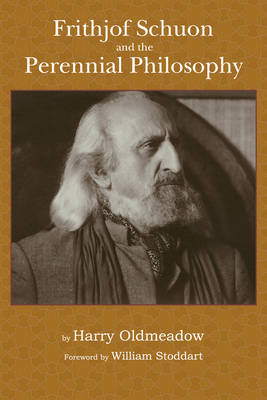Perennial Philosophy
2 total works
Henri Le Saux (1910-1973) was a French Benedictine monk who, in 1949, answered an inner call to India where he spent the rest of his life, becoming known as Swami Abhishiktananda. Following a series of mystical illuminations he thoroughly immersed himself in Indian culture, philosophy and spirituality. During his years in India he produced a series of arresting works dealing with such themes as monasticism and the trans-religious ideal of renunciation, the nature of mystical experience and its relation to religious forms and Hindu-Christian dialogue.
A CHRISTIAN PILGRIM IN INDIA provides a biographical sketch of this remarkable figure, traces the elaboration of the central themes of his writings and offers an assessment of his significance as an exemplary figure in the modern encounter of religious traditions of East and West. It also situates Abhishiktananda's intellectual and spiritual contribution within the context of the perennial philosophy. The book is generously illustrated and includes a comprehensive bibliography as well as a compilation of Abhishiktananda's spiritual aphorisms.
A CHRISTIAN PILGRIM IN INDIA provides a biographical sketch of this remarkable figure, traces the elaboration of the central themes of his writings and offers an assessment of his significance as an exemplary figure in the modern encounter of religious traditions of East and West. It also situates Abhishiktananda's intellectual and spiritual contribution within the context of the perennial philosophy. The book is generously illustrated and includes a comprehensive bibliography as well as a compilation of Abhishiktananda's spiritual aphorisms.
This is the first comprehensive study of the intellectual and spiritual message of world-renowned philosopher Frithjof Schuon (1907-1998), the foremost spokesman of the "Perennialist" or "Traditionalist" school of comparative religious thought. Intended primarily as an introductory guide to Schuon's writings, Harry Oldmeadow's book focuses on Schuon's exposition of metaphysics and the "transcendent unity of religions", his presentation of the religious traditions of East and West (including the spiritual heritage of the American Indians), his criticism of the modern world, and his views on sacred art and beauty. Also included is an overview of Schuon's paintings and poetry, as well as his insights on prayer and virtue in the spiritual life. This ground-breaking work provides the general reader with a coherent and systematic account of the Perennial Philosophy and covers all aspects of Schuon's work.
Foreword by William Stoddart
Foreword by William Stoddart

